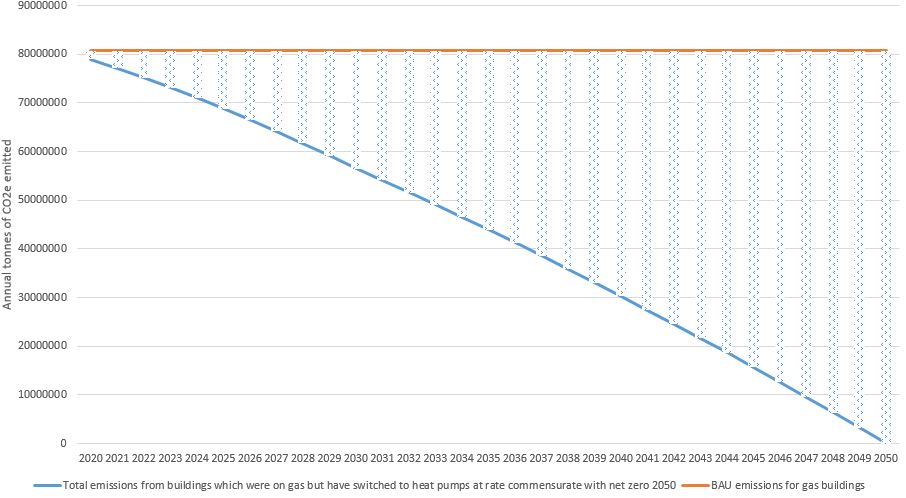Don't know about you, but I've spent the morning creating UK emission trajectories for heat. That shaded bit is the cumulative emissions of not acting. The lower line is an emissions trajectory based on heat pump deployment (1/4). 

Basically the point is, morally we need to act now, it's not just about net zero but the time taken on the journey to get there. Hence, rapidly deploy energy efficiency, heat pumps and heat networks at scale. Not enough time to wait to see what hydrogen might be able to do (2/4)
We can always change course back to H2 later (if we wanted and after we learn more) but there isn't time for delay for potential options and known technologies reduce emissions now (3/4).
From a UK carbon budget perspective, heat doesn't look like a huge problem for budget 4 (23-27) but the heat emissions become a big problem in budget 5 (28 -32). Early ramp up is also needed to get markets to scale (4/4).
• • •
Missing some Tweet in this thread? You can try to
force a refresh













